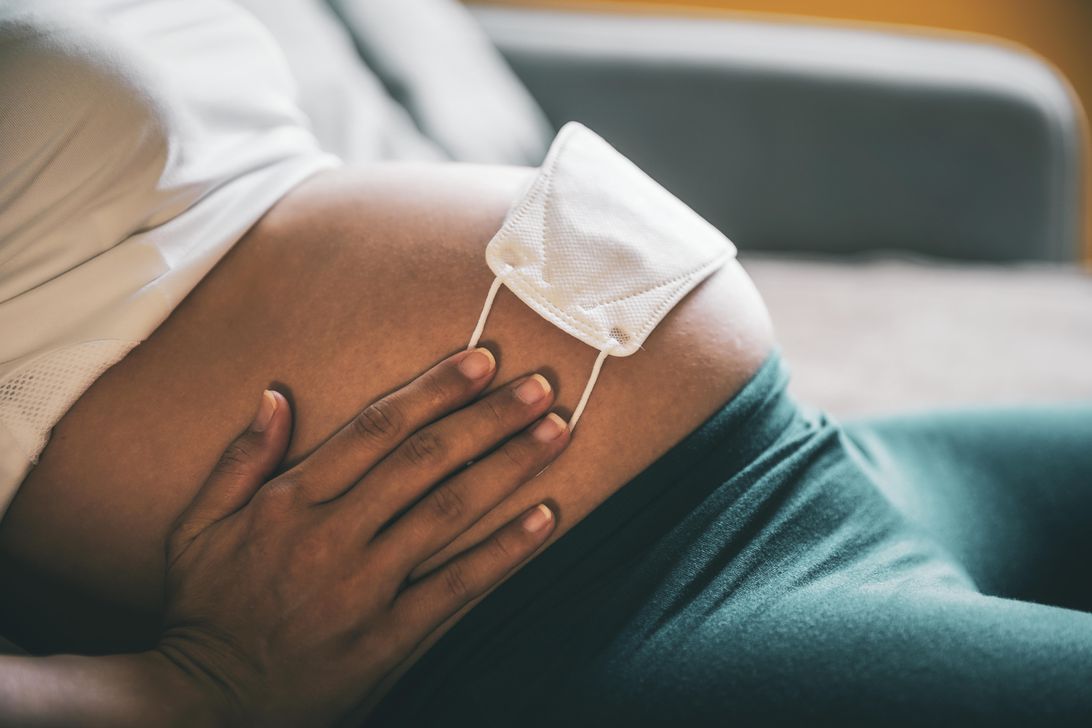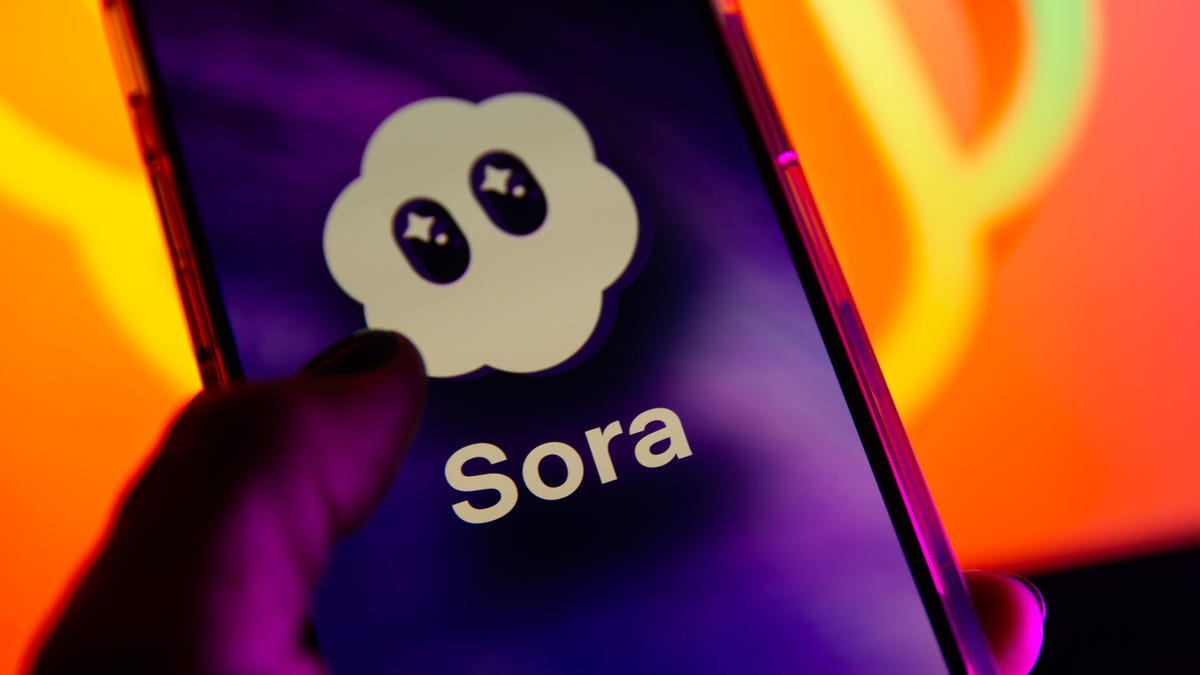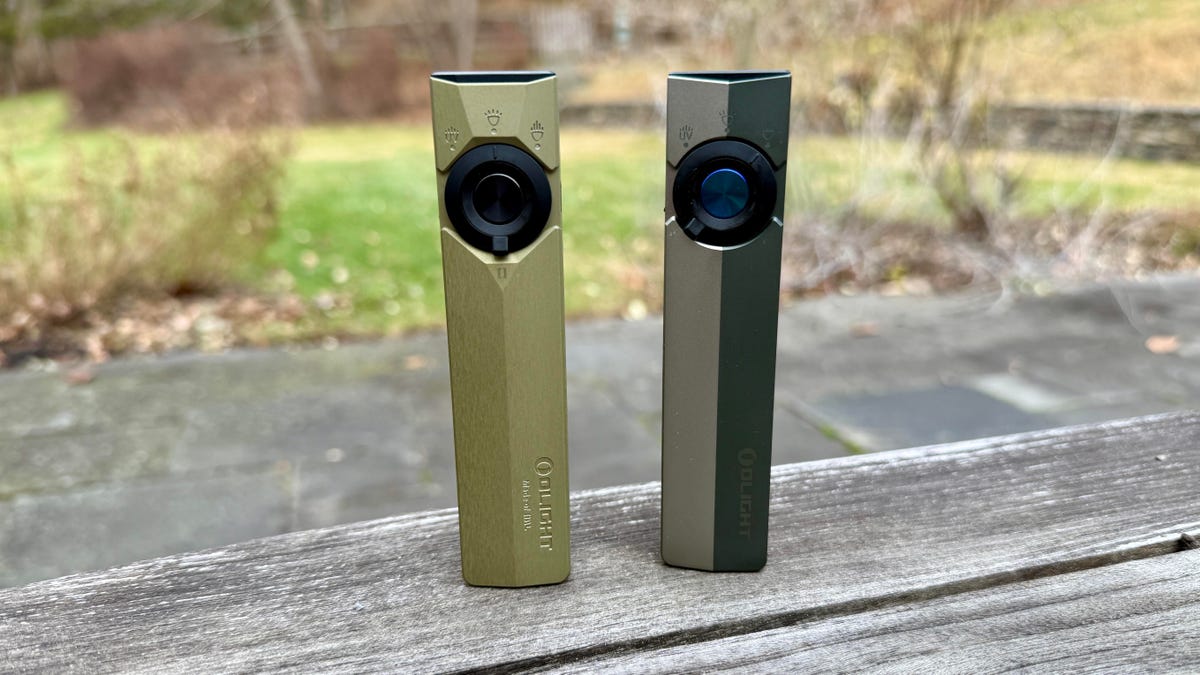Technologies
COVID raises risk of stillbirth, new research finds. What to know about vaccines during pregnancy
Here’s what we know about COVID-19 boosters, fertility and more.

In September, the US Centers for Disease Control and Prevention recommended «urgent action» be taken to get pregnant people, and those who want to be pregnant in the future, vaccinated against COVID-19. The alert was issued after mounting evidence demonstrated how COVID-19 affected the outcomes of pregnancy and the overall health of the pregnant person. As of mid-September, only 31% of pregnant people were vaccinated against COVID-19 — a much lower rate than the general US adult population — but they had a 70% increased risk of dying from symptomatic COVID-19 compared to people who weren’t pregnant.
Now, research is showing that pregnant people with COVID-19 have a higher risk of their baby being stillborn, according to a November report by the CDC. While the overall rate of stillbirths was low from March 2020 to September 2021, people who had COVID-19 during their delivery had a 1.26% chance of stillbirth, compared to people without COVID-19 at .64% — roughly double the risk. This risk was even higher, the CDC said, during the months the delta variant was circulating.
The CDC, along with other organizations that serve pregnant people such as the American College of Obstetrics and Gynecology and the Society for Maternal-Fetal Medicine have all issued recommendations that pregnant people get vaccinated against COVID-19. This is because research available during the pandemic shows that COVID-19 vaccines are safe for pregnant people, breastfeeding parents and people who may consider pregnancy in the future.
The World Health Organization says COVID-19 vaccines approved by the WHO (which include Pfizer, Moderna and Johnson & Johnson) can be taken by people who are on their period (menstruating), pregnant, planning to get pregnant and breastfeeding.
But advice for pregnant people trying to make decisions about vaccines hasn’t always been so strong. Pregnant people are often left out of medical studies, so when vaccines initially became available to protect against COVID-19, those who were pregnant were absent from the early studies on coronavirus shots. While the COVID-19 pandemic has shone some light on pregnant and breastfeeding people’s age-old status as «vulnerable,» the lack of data collected about pregnancy in the clinical trials of all three of the vaccines available in the US may have left you sifting through conflicting advice on how best to protect you and your child. As new data emerges and illustrates how pregnancy increases risk of COVID-19 disease for parents, which also puts their child at risk, here’s what we know about COVID-19 vaccines and boosters in pregnancy.
I’m pregnant. Should I get the COVID-19 vaccine?
The CDC made its official recommendation in August that, yes, pregnant people, breastfeeding people and those who want to be pregnant in the future should get a COVID-19 vaccine. The ACOG and SMFM also recommended COVID vaccines for pregnant people at the end of July after reports from «tens of thousands» demonstrated the safety of COVID-19 vaccines in pregnancy.
Other vaccines are recommended or offered during pregnancy. Some vaccines, for other diseases, aren’t recommended for pregnant people because they contain (very small amounts) of a live virus. None of the coronavirus vaccines available in the US use a live virus.
Do I need a booster if I’m fully vaccinated and pregnant?
Boosters are authorized for all adults in the US, including pregnant people (as long as you’re 18 years or older). You may get a shot at least six months after your second Pfizer or Moderna vaccine, or at least two months after your Johnson & Johnson shot, according to CDC guidance. You can get any COVID-19 vaccine available in the US as a booster if you prefer to switch brands for any reason.
Read more: How to choose a booster: What to know about mixing coronavirus vaccines
The CDC guidance for the general adult population leaves the decision on whether to boost up to the individual. However, pregnant people were actually eligible for boosters before the general public because pregnancy, or being recently pregnant, makes someone more susceptible to severe COVID-19. The ACOG, which gives guidance to pregnant individuals and their providers, recommends boosters for people who are fully vaccinated and pregnant or up to six weeks postpartum. The SMFM also recommends boosters for pregnant individuals at least six months after their second shot (or two months after, for people who received Johnson & Johnson’s vaccine).
What are the side effects of the vaccine for pregnant people?
Preliminary data on about 35,000 pregnant people who were vaccinated and volunteered information through the V-safe program shows that pregnant people have the same vaccine side effects as nonpregnant people — temporary injection pain in the arm, fatigue, headache, muscle aches and fever.
However, it’s important to note that fever from any cause has been associated with adverse pregnancy outcomes, and the CDC recommends pregnant people who experience fever after vaccination take acetaminophen to lower their body temperature.
Why are pregnant people at a high risk of COVID-19?
In May, CNET talked to Dr. Ella Speichinger, an OB-GYN at University of Missouri Health Care. She said it isn’t exactly known why pregnant people are at a higher risk, but that it may be because pregnant people’s immune systems are naturally depressed so their bodies don’t reject the growing fetus, or because pregnancy could alter the body’s way of mounting an immune response to COVID-19.
«I’ve had many patients who have had COVID while they were pregnant, and they’ve been just fine,» she said. «But there have definitely been severe cases where patients had to get delivered early because they could no longer oxygenate their fetus.»
In these cases, Speichinger said the patients usually improved after giving birth, but that it was delayed. It’s also impossible to know who will have a bad reaction to COVID-19 while pregnant.
«It’s really unclear who of the healthy pregnant cohorts is going to be the one that gets sick,» she said.
I’m skeptical of the vaccine. What are the risks of getting COVID-19 while pregnant?
Pregnant and recently pregnant people are at higher risk of severe illness from COVID-19, including death, according to the CDC, and they’re also at increased risk for preterm delivery (birth before 37 weeks) and other adverse pregnancy outcomes including stillbirth. Other health factors of the pregnant person, including a high BMI, diabetes or heart conditions, may elevate this risk, according to the SMFM.
Although there is information available now about how risky COVID-19 can be for pregnant people, that wasn’t necessarily the case at the beginning of the pandemic, and pregnant people were not highlighted specifically as «high risk.» Speichinger said that is likely because people who get pregnant are usually generally healthy and under age 40.
During what trimester should I get the vaccine?
Scientists who looked at people who got vaccinated earlier than 20 weeks pregnant didn’t find an increased risk of miscarriage compared to those who didn’t, according to a report from the V-safe pregnancy registry. Earlier data that was available reflected vaccination during the later stages of pregnancy.
Some people holding out on getting vaccinated during the first trimester may be due to the naturally high rate of miscarriage in the first three months, and patients being more cautious because of that. About 10% of known pregnancies end in miscarriage, according to the ACOG, but the risk also increases with age. About 80% of miscarriages happen in the first trimester.
«Most people feel concerned in the first trimester because there’s such a high risk of miscarriage in general,» Speichinger said. «Conflating the miscarriage with vaccine administration is what leads to vaccine hesitancy in the first trimester.»
Research shows that parents vaccinated during the third trimester of pregnancy may pass antibodies onto their newborns.
What if I’m breastfeeding?
«If a woman is uncomfortable doing it while pregnant, I absolutely think getting it while she’s breastfeeding is a good idea,» Speichinger said. «Because all of those antibodies can then cross through to the milk and protect baby while the mom is still producing those antibodies.»
There’s not enough data to show how long that protection lasts, but the CDC reports that breastfeeding people who have received an mRNA vaccine produce COVID-19 antibodies in their breast milk. In a small study on lactating health care workers who received a mRNA vaccine while breastfeeding, researchers from the University of Florida found that their breast milk had a «significant» amount of antibodies.
In its latest report, the CDC made a strong recommendation that breastfeeding people and those who were recently pregnant get a COVID-19 vaccine.
Does the vaccine type matter?
Moderna and Pfizer’s are mRNA vaccines, which use a new technology that delivers instructions to our immune systems on how to make protective proteins. Johnson & Johnson’s, the third vaccine available for emergency use in the US, uses viral vector technology by delivering a harmless virus into our bodies that triggers an immune response. Viral vector vaccines, notably the Ebola vaccine, have been studied in pregnant and breastfeeding people with no adverse effects found, according to the CDC.
The early research available now shows that mRNA vaccines are safe for pregnant women, and that miscarriage rates among women who received a COVID-19 vaccine are similar to miscarriage rates of women who didn’t get vaccinated. In a V-safe survey of 827 pregnant women who got a COVID-19 vaccine, about 14% experienced pregnancy loss — within the range that is naturally expected.
After the Food and Drug Administration lifted the pause that had been placed on Johnson & Johnson after reports of blood clots (the CDC identified 28 cases out of 8.7 million people vaccinated with Johnson & Johnson, the majority of them in women), the CDC issued a statement that women under age 50 should be aware of their increased risk of this still rare, but serious form of blood clots, and consider the other vaccines that don’t carry this risk. Given the demographic of the blood-clotting risk, Speichinger said her bias would steer her pregnant patients toward a Pfizer or Moderna vaccine.
«I still think the risk is exceedingly rare compared to the complications of COVID,» she said. «But if you had a choice, I would pick one of the other two.»
I want to be pregnant in the future. Will the COVID-19 vaccine make me infertile?
The fear people have regarding their fertility and vaccination isn’t exclusive to the COVID-19 vaccine. The specific fear about infertility and COVID-19 vaccines stems from a now-debunked post on Facebook that claimed the vaccine would make pregnant people’s bodies attack a protein needed for placenta formation in early pregnancy, because, it asserted, the spike protein in the COVID-19 vaccine is «similar.» Experts have disproved this, saying that not only do the two proteins have «almost nothing in common,» but even if they did, infection with COVID-19 would have the same outcome. There is no research to suggest people who have had COVID-19 will have a more difficult time getting pregnant, and many have since the beginning of the pandemic. If you’d like more information about COVID-19 vaccines and pregnancy, Dr. Danielle Jones, an OB-GYN who is also known as «Mama Doctor Jones» on TikTok, shared this video on YouTube debunking myths about COVID-19 vaccines and infertility, miscarriage and pregnancy.
The information contained in this article is for educational and informational purposes only and is not intended as health or medical advice. Always consult a physician or other qualified health provider regarding any questions you may have about a medical condition or health objectives.
Technologies
Sora and Google’s Nano Banana Pro Are Slammed, and Scale Back Free Videos and Images
OpenAI and Google are reducing the number of image or video requests you can make on their latest media-generation platforms.

Maybe it’s because of the holiday weekend.
OpenAI’s video generator Sora and Google’s image generator nano banana pro are placing new limits on how many videos (in the case of Sora) and AI images (in the case of nano banana pro) you can make per day.
With more people using their Thanksgiving weekend idle time to, say, make AI videos of cats as angry service industry cashiers, it’s likely these services are hitting their limits.
Bill Peebles, OpenAI’s head of Sora, posted on X, «our gpus are melting, and we want to let as many people access sora as possible!» GPUs are the graphics processing units used by AI services for the complex computations they need to perform.
Peebles wrote that Sora will limit free video generation to six videos per day. ChatGPT Plus and Pro accounts won’t see any changes.
«And everybody can purchase additional gens as needed,» he wrote.
Don’t miss any of our unbiased tech content and lab-based reviews. Add CNET as a preferred Google source.
Gemini limits
As for Google’s image generator, a Gemini support page says that those without a Google AI plan are now limited to two images generated and edited per day with nano banana pro. The previous limit was three, according to 9to5Google, which also spotted new usage limits on Gemini 3 Pro that are variable. The same support page says free access to Gemini 3 Pro Thinking includes «Basic access — daily limits may change frequently.»
The limit for nano banana (the previous 2.5 non-pro version) is 100 free images per day.
A representative for Google did not immediately respond to a request for comment.
(Disclosure: Ziff Davis, CNET’s parent company, in April filed a lawsuit against OpenAI, alleging it infringed Ziff Davis copyrights in training and operating its AI systems.)
Technologies
If You Don’t Want to Pay AirPod Prices, I Found Great Noise Canceling Earbuds That Are Only $53 for Black Friday
You don’t need to spend a fortune to get a great pair of earbuds.

Black Friday deal alert: If you’re looking for a new pair of noise-canceling earbuds, there are some good deals on Apple AirPods right now, but you might be able to spend half as much to get similar performance. I’ve found that the Air Pro 4 earbuds from Earfun are legitimate contenders to the AirPods, at a much lower price. Right now at Amazon for Black Friday, you can get the Air Pro 4s for a steal — they’re 34% off, which drops their price down to $53.
In short, they’re great, and the black ones are currently available on Amazon for $53, near the lowest price we’ve ever seen them sell for. The other colors are also on sale; the glossy white and royal blue are both $68.
Hey, did you know? CNET Deals texts are free, easy and save you money.
HEADPHONE DEALS OF THE WEEK
-
$248 (save $152)
-
$170 (save $181)
-
$199 (save $150)
How these earbuds silence the noise around you
I prefer in-ear headphones because they offer active, electronic and passive noise cancellation. Passive noise cancellation basically consists of plugging your ears with the rubbery tips included with the earbuds.
The Earfuns fit well for me when I use the second-largest of the five swappable ear tip sizes, and they stay sealed and comfortable for hours. Sometimes I have to reseal one after I yawn or something, but that’s the case with other in-ear headphones, too.
For reading, I prefer Earfun’s «Strong ANC» noise-canceling mode, which makes a big difference when blocking out the noise around you, but there are a bunch of other noise-cancellation options. The Ambient Sound function is good for when I want to pay attention to my surroundings.
Overall, I found the app easier to use than Sony’s and just as capable. The main difference is that Sony’s app has a variable slider for ambient sound.
The Earfun app also includes a white noise section in the app. Normally, I prefer Spotify for white noise (and I download my favorite playlists for offline listening) but this feature is useful for people who don’t have another music service. It includes birdsong, waves and rainfall, all of which are short clips that repeat automatically.
Why I chose these earbuds over AirPods
These headphones have every other feature I’d expect, including the ability to connect to two devices simultaneously and programmable touch-sensitive controls on the buds. Plus, battery life has been more than ample for me, even after a marathon reading session.
There’s also a finder function if you misplace either earbud (unlike Apple FindMy, however, they have to be connected and in Bluetooth range). For actual music and voice calling quality, they sound fine, albeit not as good as my big Sonys.
I have an iPhone and briefly thought about buying Apple AirPods, but I didn’t want to spend the money. The AirPods 4 with noise cancellation cost $115 more than these Earfuns and have an open-ear design, so they rely entirely on the electronic (not passive) method. The AirPods Pro 2 are in-ear and superb, but I didn’t want to spend $250 on a pair of secondary headphones.
Yes, I could probably save some money on an even less expensive pair of in-ear noise-cancelling headphones, but I’m not sure I’d be as happy with their fit, long-term comfort, battery life and noise-cancellation performance. The Earfun Pro 4 buds help me relax and concentrate on my book, and for me that’s priceless.
For more headphone savings, check out our roundup of all the best deals on headphones, or find bargains of all kinds in our roundup of the best Amazon Prime Day deals going on now.
Join Our Daily Deals Text Group!
Get hand-picked deals from CNET shopping experts straight to your phone.
By signing up, you confirm you are 16+ and agree to receive recurring marketing messages at the phone number provided. Consent is not a condition of purchase. Reply STOP to unsubscribe. Msg & data rates may apply. View our Privacy Policy and Terms of Use.
Technologies
I Have a Flashlight Fetish and My Favorite New Olight Is 20% Off for Black Friday
Olight’s sleek new pocket flashlight, the ArkPro, is normally $100. But it’s down to $80 for Black Friday and Cyber Monday.

Truth be told be told, I have a thing for flashlights. Not a bad thing, just a certain appreciation for a well-designed torch, as the Brits might say.
Bright flashlights are good, naturally, but a small, sleekly designed rechargeable everyday carry flashlight that puts out a decent amount of light is high on my list of flashlight favorites, and the new Olight ArkPro and its slightly brighter sibling, the ArkPro Ultra, fit the bill. They’re both on sale for Black Friday and Cyber Monday for 20% off. The ArkPro is down to $80 ($100 list) while the ArkPro Ultra’s price has dipped to $104 ($130 list).
The flashlights are upgraded versions of Olight’s Arkfeld Pro ($70) and Arkfeld Ultra ($84), with higher brightness ratings. Both new models have similar flat, IPX7 waterproof designs with sturdy metal bodies and a magnetic base that allows you to attach the flashlight to anything metal. There’s also an integrated clip-on mount, and they come in cool white and neutral white color temperature versions.
You get three lighting modes: a 1,500-lumen floodlight mode (1,700 lumens for the ArkPro Ultra), an 800-lumen, 205-meter reach spotlight mode (it’s the same for the Ultra) and a UV light mode. You can also activate a green beam laser pointer.
The flashlights come with a wireless charger that magnetically attaches to the base, but you can also charge them via USB-C, which I found more convenient.
I mainly tested the flashlights while walking my dog at night in a pretty remote rural area in New York. The floodlight mode works better for dog walking, but I’d sometimes switch to spotlight mode when I wanted to gauge what was further ahead of us or check whether anything was lurking in the trees or bushes.
These smaller EDC flashlights are well-suited to a variety of activities, including camping and anything you’re doing where you’d like to have a flashlight handy that you can easily carry around in a pocket. You can find similar flat flashlight designs from other brands on Amazon — some of them for significantly less money. However, Olight is considered a premium EDC flashlight brand, though some flashlight enthusiasts are less enthusiastic about the brand for a few reasons. That said, I’m just fine recommending these new ArkPro models when they’re discounted like this. And they do make for nice gifts this time of year.
Join Our Daily Deals Text Group!
Get hand-picked deals from CNET shopping experts straight to your phone.
By signing up, you confirm you are 16+ and agree to receive recurring marketing messages at the phone number provided. Consent is not a condition of purchase. Reply STOP to unsubscribe. Msg & data rates may apply. View our Privacy Policy and Terms of Use.
-

 Technologies3 года ago
Technologies3 года agoTech Companies Need to Be Held Accountable for Security, Experts Say
-

 Technologies3 года ago
Technologies3 года agoBest Handheld Game Console in 2023
-

 Technologies3 года ago
Technologies3 года agoTighten Up Your VR Game With the Best Head Straps for Quest 2
-

 Technologies4 года ago
Technologies4 года agoBlack Friday 2021: The best deals on TVs, headphones, kitchenware, and more
-

 Technologies4 года ago
Technologies4 года agoVerum, Wickr and Threema: next generation secured messengers
-

 Technologies4 года ago
Technologies4 года agoGoogle to require vaccinations as Silicon Valley rethinks return-to-office policies
-

 Technologies4 года ago
Technologies4 года agoOlivia Harlan Dekker for Verum Messenger
-

 Technologies4 года ago
Technologies4 года agoiPhone 13 event: How to watch Apple’s big announcement tomorrow
